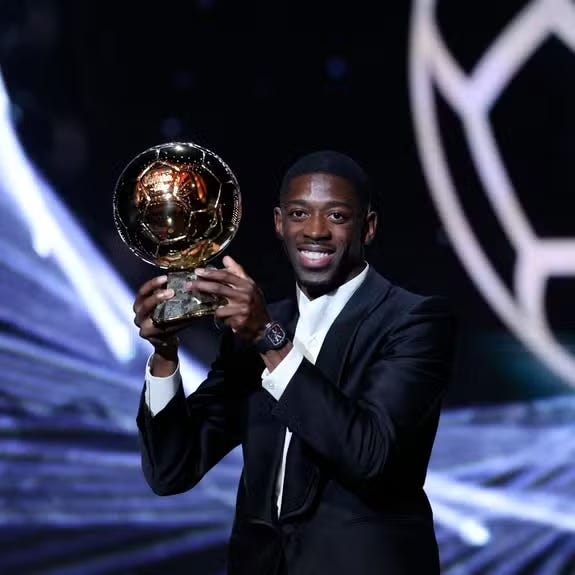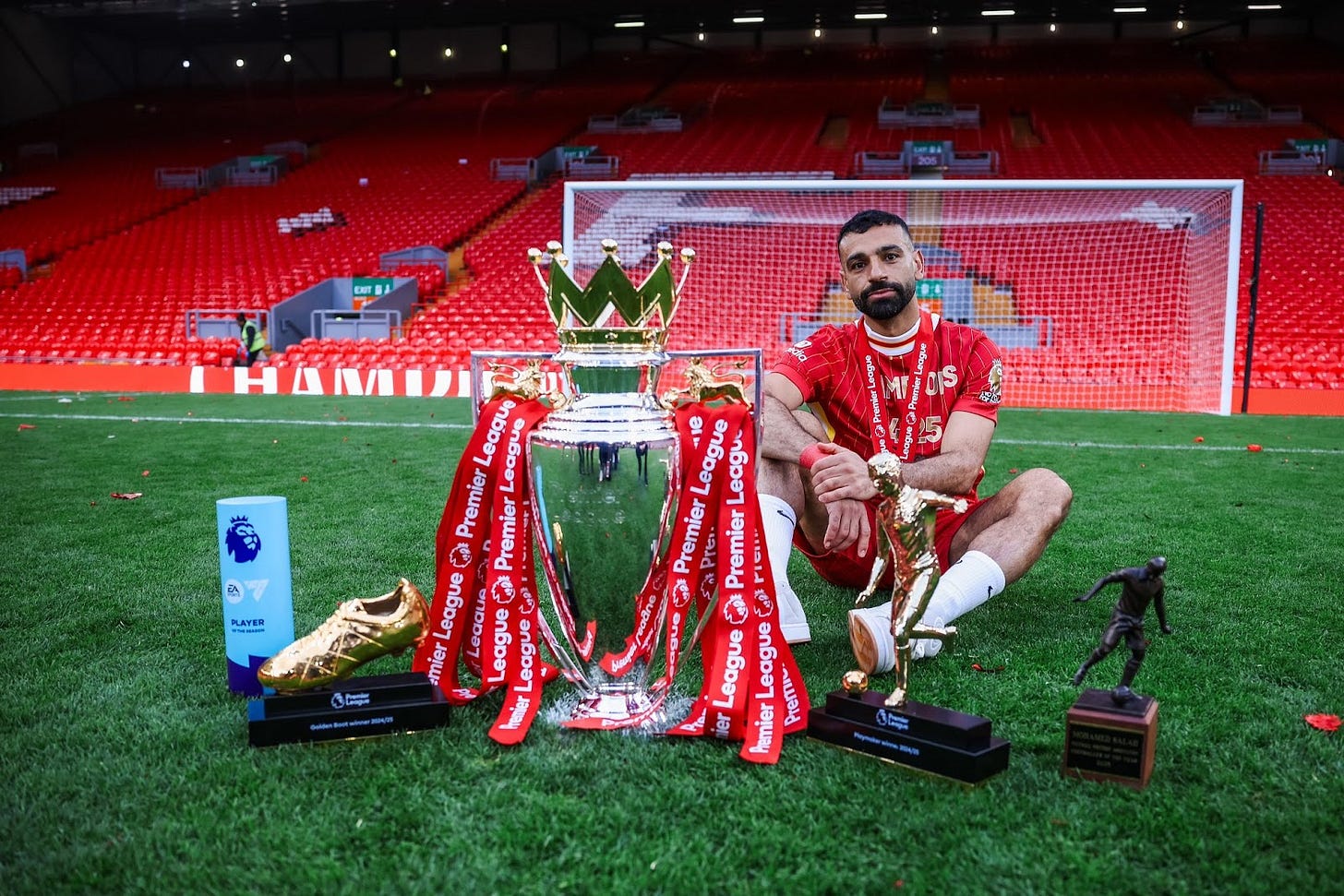Why Mohamed Salah’s Ballon d’Or Snub Proves the Award Has Lost All Credibility
Ousmane Dembélé’s win is fair enough, but placing Lamine Yamal ahead of Salah exposes how political and narrative-driven the Ballon d’Or has become.
Dembélé’s Triumph Was No Surprise
Let us be clear from the outset. I have no issue with Ousmane Dembélé winning this year’s Ballon d’Or. He had a stellar campaign with Paris Saint-Germain, firing them to a historic treble and finally delivering the Champions League title that had eluded the French giants for so long. With 35 goals and 16 assists, he deserved recognition. If you wanted to crown a player who defined his club’s season, then Dembélé ticks the boxes.
What I cannot accept, however, is Lamine Yamal finishing runner up, with Mohamed Salah shunted down into fourth. That is not just an oversight, it is a complete mockery of the process.
Salah’s Season of Relentless Brilliance
Let us look at the facts. Salah scored 34 goals and produced 23 assists in all competitions. That is 57 goal contributions across a season in which Liverpool won the Premier League by ten points. He was named Premier League Player of the Year, he scooped the PFA and FWA awards, and he carried his side week after week in the most competitive league on the planet.
His output was not inflated by soft fixtures or endless space. It was forged in the unforgiving reality of English football, where even relegation battlers bite back. He scored or assisted in more than half of Liverpool’s goals in a title-winning campaign under Arne Slot. Those numbers alone should have made him impossible to ignore.
And yet, the journalists and judges behind the Ballon d’Or found a way to do just that.
How Does Yamal End Up Second?
The voting process is now clear. One journalist from each of FIFA’s top 100 nations submits a top ten, with points awarded from 15 down to one. It sounds simple, but it is riddled with bias.
So, how does a teenager who has just emerged and in the infancy of a career end up as runner up and still the Egyptian King comes fourth? The only explanation is narrative. Yamal is a fresh face, a marketable story, a name to plaster on billboards. That sells.
The Ballon d’Or has always loved a fairytale, it has always loved a headline. But when that comes at the expense of footballing fairness, the award becomes meaningless.
Would Beating PSG Have Changed It?
Liverpool’s exit to PSG in the Champions League round of 16 was decisive. Salah’s extraordinary league campaign was not enough to overcome the sway of Europe’s glamour competition. If Liverpool had knocked PSG out, the narrative would have shifted, and the votes would likely have followed.
This is the crux of the matter. The Ballon d’Or is less about performance and more about the stories people want to tell. Knockout football and Champions League nights carry more weight than consistent brilliance across a season in the hardest domestic league in the world.
A Pattern of Disrespect
Salah’s treatment is not new. This is the same award that never gave Thierry Henry the recognition he deserved at his peak. It is the same award that has never put Salah inside the top three despite years of world-class consistency. It is an award built to celebrate hype and history rather than the players who genuinely define their teams.
To relegate Salah to fourth behind Yamal is not just wrong, it is insulting. It tells you all you need to know about how this ceremony values politics over football.
Eurovision With Football Boots
At this point, the Ballon d’Or is beginning to look like Eurovision with football boots. Bloc voting, political agendas, sentimental stories. It is about anything but the actual game. The fact that Salah chose not to attend speaks volumes. He knew he would be snubbed, he knew his efforts would be dismissed, and he did not waste his time.
In truth, he lost nothing by staying away. The award lost the chance to claw back a shred of credibility.
The Verdict
The Ballon d’Or is supposed to honour the best footballer in the world. Instead, it has become an industry handshake, a glitzy evening in Paris dressed up as prestige. It sells stories rather than celebrating players.
Dembélé’s win can be defended. Yamal’s runner up place cannot. Not when Salah’s numbers dwarf his and his influence on a champion side was immeasurably greater.
Until the Ballon d’Or finds a way to honour football over politics, it is nothing more than a hollow trophy. Mohamed Salah’s snub proves it once again.




Amen.